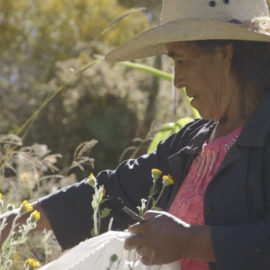An ethical supply chain is one that respects both the environment and the people and communities involved in the production process. More and more, consumers’ expectations go beyond superficial elements and scrutinize brands’ behaviours at every level. For instance, in the cosmetics market, this has meant a greater demand for ingredient transparency.
Consumers no longer just demand these movements from brands: they’re ready to take action. In fact, according to the 2021 global Euromonitor survey, 17% of consumers are willing to pay more for environmental and ethically conscious products, while 9% will pay more for products developed in a fair trade.
At the same time, sustainability expands to include purpose-driven action. The same survey found that, when asked “which of the following activities do you typically do to be active in political and social issue?”, the majority of participants answered “buy from brands that support social and political issues that are aligned with my values”.
These consumer trends are sending a clear message to companies: build an ethical supply chain and clients will follow. In order to align with this, brands must look for reliable suppliers that are able to provide sustainable, ethical ingredients.
Keep reading to find out how Provital, by becoming the first cosmetic ingredient supplier to meet the Nagoya protocol, has managed to become an unmissable partner for brands looking to shape their own ethical supply chain.
Content
The Nagoya protocol: the key for an ethical supply chain
The Nagoya Protocol was established in 2002 with the aim of implementing the fair and equitable sharing of benefits arising out of the utilization of genetic resources, thereby contributing to the conservation and sustainable use of biodiversity.
This protocol recognises the need for international legislation that supervises an interconnected world where companies are looking back to nature and humanity’s age-old knowledge. This aligns with the rise of organic and natural beauty and personal care products, also known as biocosmetics, regulated by international certifications. At the same time, guaranteeing biodiversity conservation throughout the value chain and the rise of organic skincare certifications for private labels have been adopted by companies in order to provide solutions for increasingly conscious and informed consumers.
The Nagoya protocol recognises that countries have sovereign rights over genetic resources and traditional knowledge. Thus, whenever a global company approaches these resources to develop new, innovative products, these rights must be respected.
All in all, when benefits arise from research or commercial use, these should be shared in a fair and equitable manner with the country providing the resources.
More than 100 countries have adhered to this protocol, building a background for ethical biocommerce that guarantees greater transparency in the traceability of end products, while also strengthening the relationships between suppliers, companies and customers.
Following our commitment to help companies build an ethical supply chain, Provital is the first cosmetic ingredients supplier worldwide to achieve the Internationally Recognized Certificate of Compliance (IRCC) at Access and Benefit-Sharing Clearing-House (ABSCH). In other words, we’re the first company in our industry to hold the official certificate that confirms that our company fulfills Nagoya Protocol requirements.
An example for an ethical supply chain: Mujeres y ambiente, a Nagoya-subscribed Provital project
The Mujeres y ambiente project has opened the door for Provital to become the first cosmetic ingredients’ supplier to fulfill Nagoya protocol requirements.
While we work to produce and sell active ingredients for the cosmetics industry from plant sources, we acquire plants all over the world. However, building a trustworthy, ethical supply chain is a priority for us, as we try to be in touch directly with farmers.
The Mujeres y ambiente project is an example for this. It was founded by Doña Eulalia Moreno and her two daughters with the objective of improving the livelihoods of local farming communities through a micro-enterprise focused on the sustainable cultivation of vegetables, and medicinal and aromatic plants.The project actively focuses on toronjil or agastache mexicana, a native plant to Mexico which we use for our active Agascalm™.
Through this project, we ensure we help promote women’s empowerment and local, sustaining economies. Thus, our production plant in Mexico builds local teams that are focused on training and infrastructure, which also allows the community to increase their income and economic development.
TheMujeres y ambiente project has then become many things: it’s a sustainable, social farming project that also incorporates research and educational processes. It all translates into promoting local ethical sourcing, biodiversity and sustainable cultivation.
Provital’s commitment with an ethical supply chain goes beyond this award-winning project. For instance, we’ve also shared our benefits with Africa’s traditional knowledge holders in order to build our Affipore™ active ingredient.
Provital thus has become the perfect partner for companies that are developing their own ethical supply chain.
No comments yet
There are no comments on this post yet.





Leave a comment